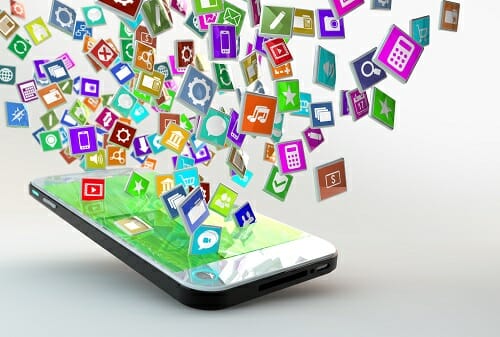In the fast-evolving landscape of healthcare, mobile app development has emerged as a game-changer, redefining how medical services are accessed, managed, and delivered. With the convergence of cutting-edge technology and the healing arts, healthcare mobile apps are becoming a cornerstone in the quest for improved patient care, enhanced communication, and streamlined processes.
Pioneering Personalized Patient Care
Contents
The advent of healthcare mobile apps marks a paradigm shift towards personalized patient care. These innovative applications empower individuals to take control of their well-being by providing real-time access to medical information, personalized treatment plans, and medication reminders. Gone are the days of sifting through paper records; now, patients can effortlessly track their health metrics, view test results, and even engage in telemedicine consultations with healthcare professionals.
Read Also: Pioneering the Paradigm A Trailblazing Enterprise Mobile App Development Company
Seamless Connectivity and Communication
Effective communication between patients, doctors, and caregivers is the bedrock of quality healthcare. Mobile apps are dismantling communication barriers by enabling secure and instantaneous interaction. Push notifications serve as a conduit for appointment reminders, medication schedules, and important updates. Video consultations bridge geographical gaps, ensuring that medical expertise is accessible regardless of location. This digital synergy promotes a collaborative approach to healthcare, enhancing patient engagement and satisfaction.
Empowering Medical Professionals
Healthcare mobile apps aren’t just reshaping patient experiences; they’re also empowering medical professionals with sophisticated tools. From electronic health records (EHR) integration to diagnostic assistance, these apps streamline workflows, allowing physicians to make informed decisions swiftly. Mobile apps also facilitate peer-to-peer consultations, enabling doctors to seek expert opinions and collaborate on complex cases, ultimately raising the bar for healthcare standards.
Enhancing Administrative Efficiency
In the labyrinthine world of healthcare administration, mobile apps are like a guiding light. Administrative tasks such as appointment scheduling, billing, and insurance claims processing are being automated, reducing paperwork and human error. These apps also aid in managing medical inventory, optimizing resource allocation, and tracking patient flow within hospitals—a boon for healthcare facilities striving for operational excellence.
However, the realm of healthcare mobile app development isn’t without its challenges. Stringent regulations such as HIPAA (Health Insurance Portability and Accountability Act) in the United States and GDPR (General Data Protection Regulation) in Europe cast a vigilant eye on patient data privacy and security. Developers must meticulously design apps with robust encryption, secure data storage, and stringent user authentication mechanisms to ensure compliance and foster trust.
Innovating for the Future
As technology advances at an unprecedented pace, the future of healthcare mobile app development holds exciting possibilities. Integration with wearable devices and Internet of Things (IoT) sensors promises to furnish real-time health monitoring, enabling early detection of anomalies and proactive intervention. Machine learning algorithms and artificial intelligence are poised to empower predictive diagnostics and personalized treatment recommendations, revolutionizing the way diseases are identified and managed.
Healthcare mobile app development is reshaping the contours of the healthcare landscape. With personalized patient care, seamless communication, empowered medical professionals, administrative efficiency, and adherence to regulatory standards, these apps are ushering in an era of patient-centric, digitally augmented healthcare. As innovation surges forward, the potential to transform healthcare into a more accessible, efficient, and effective realm becomes increasingly tangible.






















